What are inbound links, why do search engines like Google trust them so much and 10 ways you can get links to your website for top visibility on the Web.
According to Google, inbound links are one of the most important factors for ranking websites in search results. Of over 200 Google ranking factors, we know links are among the top three most important.
What is an inbound link?
The Internet is a web of digitized pages connected by links. An inbound link is simply any link from one web page to another, but when we talk about getting inbound links, we’re really talking about links from other websites, not links from within your own website.
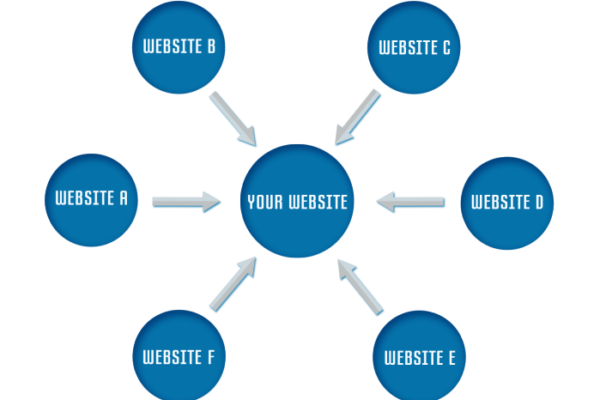
So why are links so important and why do Google and the other search engines use links to rank your website?
Answer: Because most web masters wouldn’t send their visitors to another website (via a link) unless it had important and relevant information for visitors. Google loves to promote websites with unique, relevant and useful information as well.
When highly trusted sources link to your material, it’s pretty compelling evidence that your content is valuable.
If an online news agency linked one of their articles to your website, for example, that news agency is indicating to the search engines that your website has information good enough to send their visitors to it. It tells Google that there’s likely something interesting to be found over there.
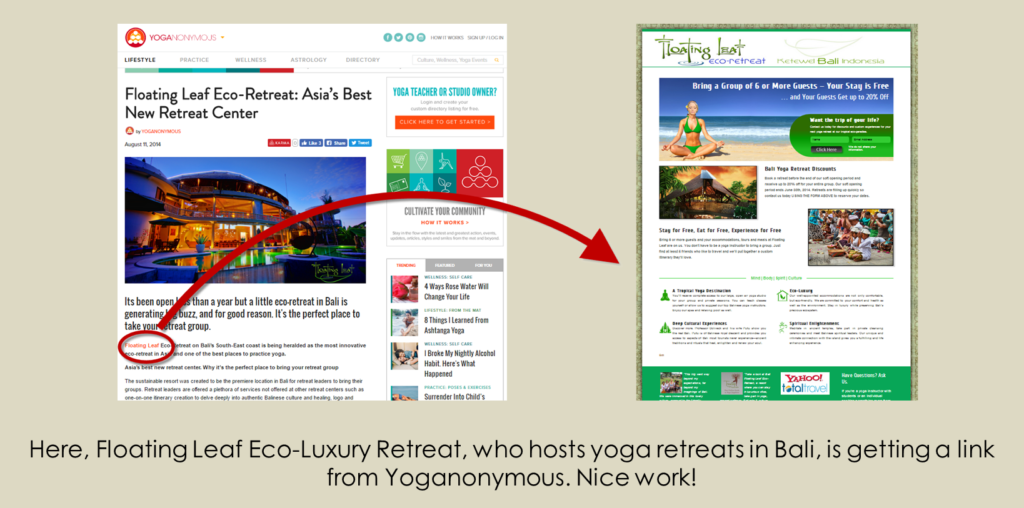
And search engines like Google want to display the best content possible so they will push your website up in search results so more consumers can find it and take advantage of all that great information.
As you can see from the chart below, it appears most SEO professionals rate links as the most important ranking factor.
Moz.com asked 150 SEO experts to rate influence exerted by broad areas of ranking factors on Google’s core search algorithm. Each area was rated on a score of 1 (not influential) to 10 (highly influential). Thanks to Moz for the survey.
Now it’s important that I take a moment and address some of the dangerous link manipulation practices found throughout the Web.
Webmasters and marketers learned a long time ago that inbound links (also called backlinks) are a great way to get a higher position for their website within search.
As a business owner, you’ve probably gotten plenty of phone calls and emails from random people claiming that they can get your website “to the top of Google.”
They know that links are the way to get there so a few years ago the internet was full of link schemes and link farms where a marketer would create hundreds or thousands of blogs, for example, and allow others to guest post on the blogs for a fee.
The new post would typically be an article relevant to the guest poster’s business and would contain a few links back to his or her website. That’s just one example.
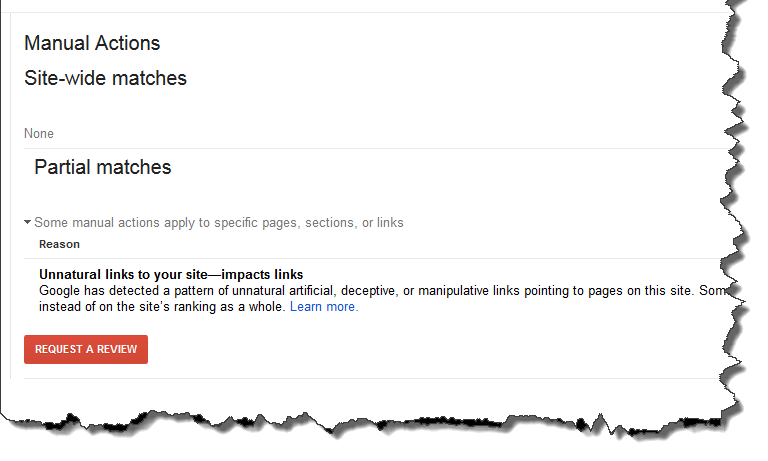
You don’t want a warning like this from Google.
It got so far out of hand that Google finally put a stop to it with some aggressive algorithm updates. From the horses mouth:
“Any links intended to manipulate PageRank or a site’s ranking in Google search results may be considered part of a link scheme and a violation of Google’s Webmaster Guidelines. This includes any behavior that manipulates links to your site or outgoing links from your site.”
It is against Google’s webmaster guidelines to purchase links or try to “game” Google’s search algorithm. None of those old manipulation practices work anymore anyway and if caught, your website can lose visibility.
So if we know links help our website to become more visible within search results—but we’re not supposed to manipulate the search engines—how do we get inbound links? Here are some of my favorite ideas:
10 Ways to Get Quality Inbound Links
There are a lot more than 10 ways to get links. Below is a list of just 10 that I thought would be most relevant to you as a business owner:
Write Extraordinary Content
Many SEO consultants urge their clients to write good content. I disagree, you need to write what Rand Fishkin of Moz.com calls, extraordinary content—content so good that others are compelled to link to it. This is by far the best strategy for link building. Incidentally, it’s also the way Google prefers you to build links.
When you have extraordinary content, share it in online forums and communities. Post it in social media. You can even promote it with ads in Facebook, Linked In and other platforms. Get it out there and encourage others to share it.
If you’re not a good writer, you can find plenty in independent contractor forums like Upwork and Fiverr.
Register Your Business in Online Directories
Make sure your business is listed in the top business directories like Yelp, the BBB, Trip Advisor (if you’re in the travel business), the online Yellow Pages, Yahoo Local, Angie’s List and so on.
Most business directories allow you to upload all sorts of information about your company such as a description, images and yes, a link to your website. The link power you get from directories isn’t earth-shattering, but it could give you a slight advantage if you’re listed and your competitors aren’t.
There are thousands of business directories out there, but you don’t need to bother with all of them. Just pick the top 10-15 as well as any niche or location specific directories.
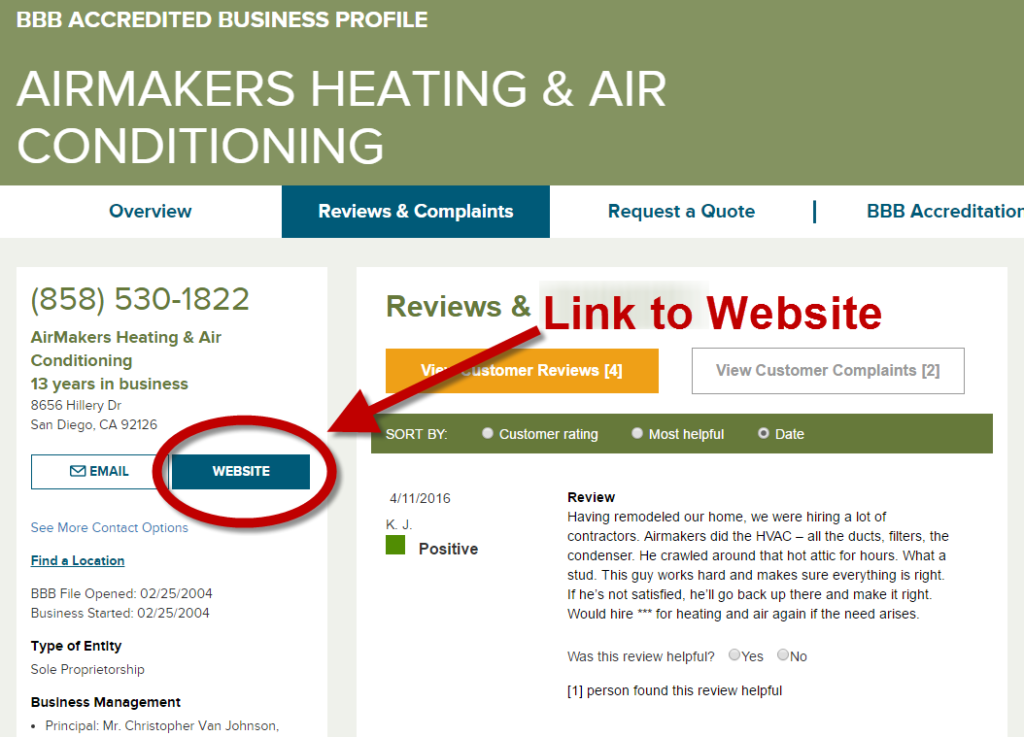
Press Your Vendors and Suppliers
If your company has regular suppliers and vendors that rely on your business, then press them to link to your website from theirs as a way to say thanks for the business.
These types of links are quite good because they are industry specific, which is what search engines like Google like to see.
Try Local Nonprofit Organizations
If you give to your local community or nonprofits, they are always eager to return the favor and a link from their website, which usually has Google trust, is a good way to do that.
Give Testimonials
Many websites have a client testimonials page in order for you to rate products and services you’ve used. Often, these sources will allow a link that you can direct back to your website. If the product or service that you are reviewing is related to your business, the link can be quite useful and relevant.
If you’re in the food service business, perform a Google search for restaurant supply testimonials, for example. Or go directly to your supplier websites and determine if you can leave a review for any of the products you use. You can do this for just about any industry.
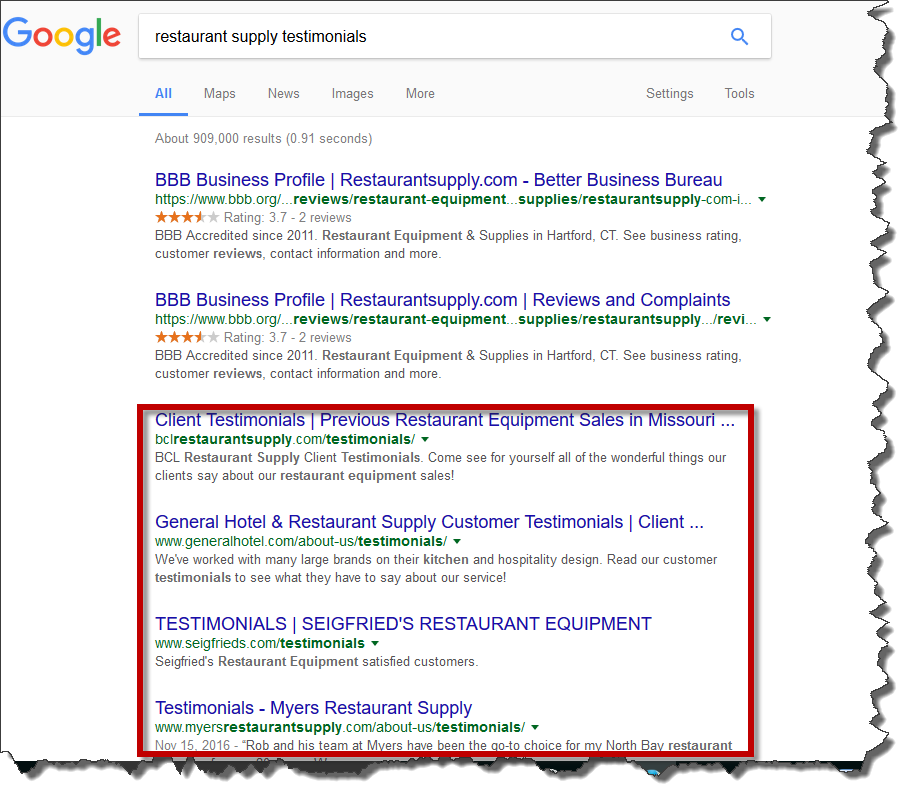
Let the Media Work for You
This is one of my favorite ways to promote a business because nobody does it and it works.
Find out what reporters cover your niche/market and contact them to let them know you’re available as an industry expert.
Scan the news each morning looking for anything related to your niche and if you see something relevant, contact the local reporters to have them interview you. They may feature you on the news that day.
Most radio, print and TV news agencies also feature stories on their website as well. If they don’t post a link to you as a source, call them and ask them to do it. They will in most cases to preserve transparency and to help consumers. You’re now an industry expert after all.
A good source to find reporters looking for stories is HARO (notice the link I just gave them), but don’t forget to create relationships with your local media.
I’ve done it myself and have had great success, not just for inbound links, but to promote your business as well.
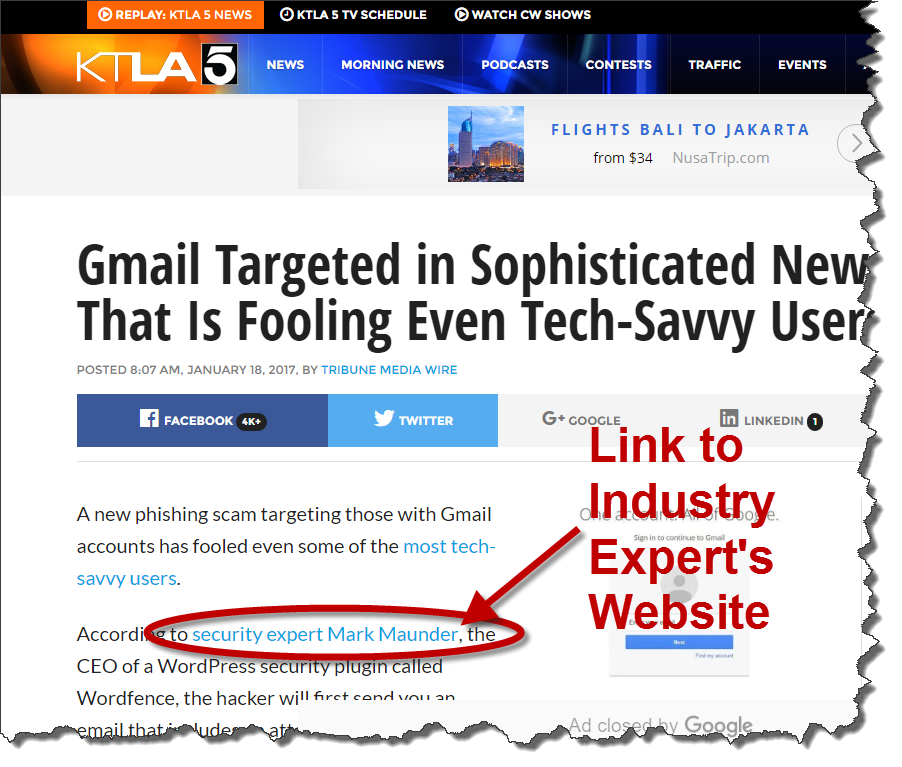
You can also promote your business to press release websites like prweb.com (free) and Marketers Media (paid).
Using press releases is no longer an effective SEO tactic on its own, but if you have some pretty juicy news about your company, you could get picked up by an interested reporter.
Hire a PR Firm
SEO has changed dramatically in recent years. For many businesses, it makes more sense to hire a public relations firm than an SEO company.
A PR firm can get the word out about your business to the media and other influential sources. Because they have the relationships already established, they can do it more effectively than most SEO agencies. They’ll get you the exposure and along with it, the links you need to rank well in search results.
I believe PR firms are the SEO agencies of the future.
Link From Social Media
There is not a whole lot of evidence that I see yet of inbound links from social media having a direct impact on how a website ranks within Google.
The value of social media is to spread the word of your excellent content. The more people you expose your content to, the better are your chances of someone linking to it.
If other industry experts link to your content, then that will help your website gain credibility and trust from Google. We believe trust is a ranking factor so actively share your content wherever you can; social media, forums, online communities—even directly with industry experts.
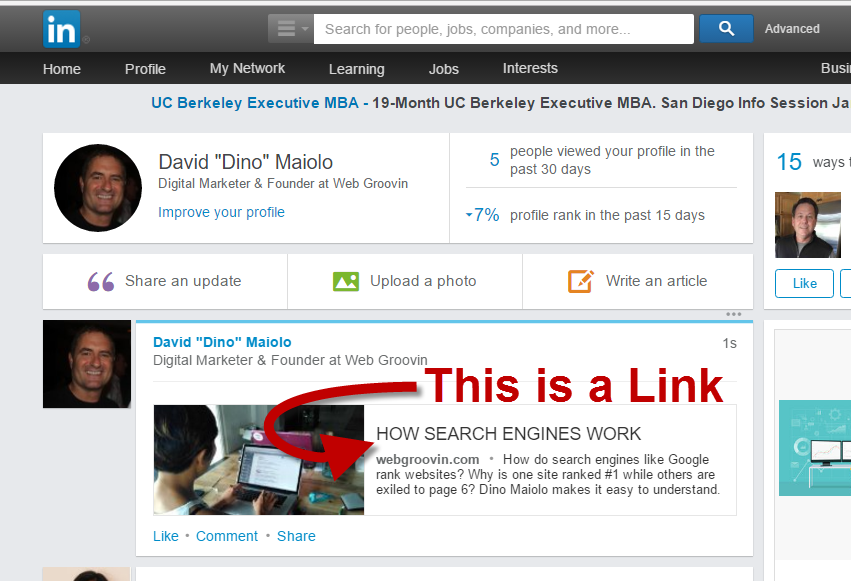
Get in Those Trade Associations
Trade associations are excellent sources. If you’re a heating and cooling contractor for example, pay to be in all the trade associations in your country like HEVAC in England, AMCA in Australia and NATE in the US.
These are highly relevant links and they often come with membership. They are trustworthy and relevant so search for associations in your industry and get listed.
Get Creative with Articles, Guests Posts and More
Guest posting on another blog is a great way to get a link to your website. Your competitors are unlikely to let you post on their blogs, but other industry experts may need content.
Guest posting also helps you build authority within your industry. Check to see if trade associations or online communities have blogs that allow you to post relevant and informative articles.
You can also join online forums and communities. Many allow links in your signature or bio.
The real value of online communities and forums is the reputation you get by answering questions and helping others. Do it enough and you’ll become one of the experts in that community.
You’ll receive more trust and members of the community may want to hire you.
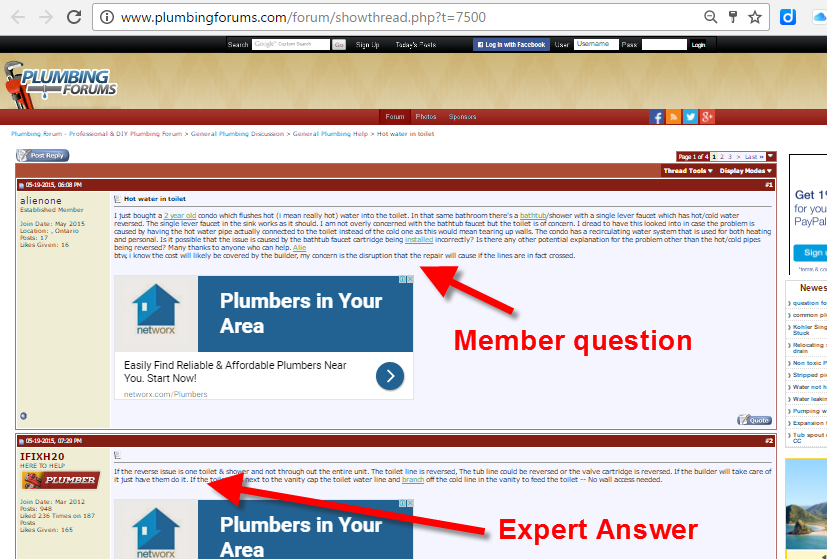
Here, a member of an online plumbers community asks a question in the forum. An expert gives a direct response. The expert’s profile has a link back to his website.
What about you?
Do you have any questions about link building or how you can use links to get better visibility in search? What about linking ideas? Did I miss any that have been especially successful for you?
Have you tried any that I listed that you don’t think work for your niche? Please share your thoughts, criticism, ideas and questions.

